This guide provides practical, evidence-based information that first responder agencies, their partners, and communities can use to implement or expand practices and programs for linking people to substance use services.
Dashboard: Filter Bricks
Main page content
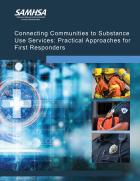
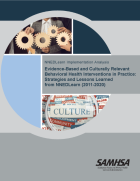
This report provides findings from a qualitative analysis of evidence-based and culturally relevant behavioral health practices offered at NNEDLearn, a SAMHSA training, offered from 2011 to 2020. It includes an overview of NNEDLearn, case studies, strategies and lessons learned, and conclusion.
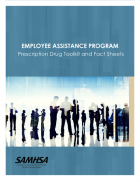
The EAP Prescription Drug Toolkit and Fact Sheets provide guidance related to counseling, referrals, and follow-up services (e.g., alternatives to prescription drugs, workplace drug misuse and relapse prevention, dangers of combined drug use, screenings, and evaluations before returning to work).

The book is composed of SAMHSA’s “National Guidelines for Behavioral Health Crisis Care: Best Practice Toolkit” and related papers on crisis services. The toolkit reflects relevant clinical and health services research, review of top national program practices and replicable approaches that support best practice implementation. The related papers address key issues relevant to crisis services, homelessness, technology advances, substance use, legal issues impacting crisis services, financing crisis care, diverse populations, children and adolescents, rural and frontier areas, and the role of law enforcement.

This updated manual contains a 12-week cognitive–behavioral anger management group treatment model. The content includes specific instructions and suggested remarks for group leaders, and exercises for group members. This model will work in a variety of clinical settings, and with diverse audiences.
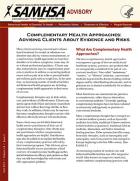
This advisory for behavioral health practitioners provides a brief overview of complementary health approaches. It describes the practices and products that are considered complementary, and explains how practitioners can help patients understand the benefits and risks.
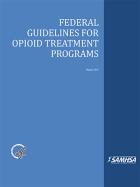
This manual provides guidelines for the operation of opioid treatment programs. It covers patient assessment, treatment planning, and recovery care. The manual also offers guidance for medication-assisted treatment for methadone and buprenorphine, and overdose and relapse prevention.
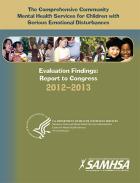
This report presents 2012 to 2013 findings from a federally funded program that supports community-based mental health services for children experiencing serious emotional disturbances. It describes the system of care approach, service characteristics and use, and child outcomes.
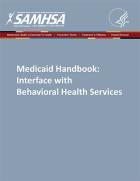
This handbook reviews Medicaid and its role in financing services and treatment for mental illness and substance use disorders. It discusses services included in state Medicaid plans and other factors related to Medicaid, such as reimbursement.
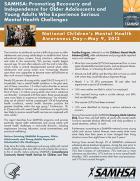
This report highlights programs that promote recovery and build resilience among older adolescents and young adults living with serious mental illness. It describes initiatives that address employment, housing, education, social connectedness, and emotional well-being.
Displaying 1 - 10 out of 13

